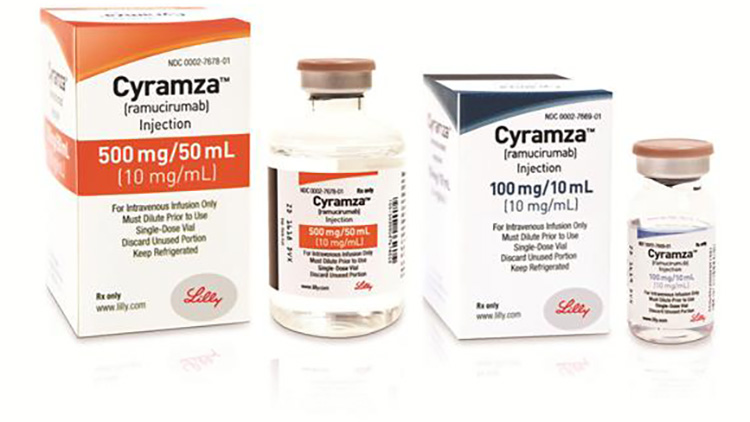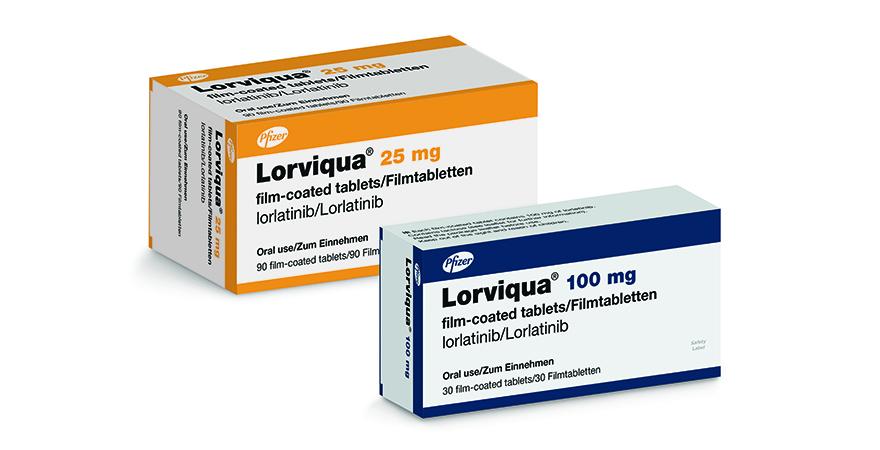Cyramza (ramucirumab) vs Lorviqua (lorlatinib)
Cyramza (ramucirumab) vs Lorviqua (lorlatinib)
Cyramza (ramucirumab) is a monoclonal antibody that works by inhibiting the vascular endothelial growth factor receptor 2 (VEGFR2), which can help to slow the growth of new blood vessels to tumors, and is used for various types of cancer, including stomach cancer and non-small cell lung cancer. Lorviqua (lorlatinib) is a targeted therapy known as an ALK and ROS1 inhibitor, specifically designed for the treatment of patients with ALK-positive metastatic non-small cell lung cancer, particularly those who have progressed on prior ALK inhibitors. When deciding between Cyramza and Lorviqua, it is crucial to consider the specific type of cancer, the molecular characteristics of the tumor, and previous treatments, as Lorviqua is tailored for a specific mutation, while Cyramza has a broader application in oncology but targets the tumor's blood supply.
Difference between Cyramza and Lorviqua
| Metric | Cyramza (ramucirumab) | Lorviqua (lorlatinib) |
|---|---|---|
| Generic name | ramucirumab | lorlatinib |
| Indications | Gastric cancer, non-small cell lung cancer, colorectal cancer, hepatocellular carcinoma | Non-small cell lung cancer |
| Mechanism of action | Angiogenesis inhibitor by VEGFR-2 antagonism | ALK and ROS1 tyrosine kinase inhibitor |
| Brand names | Cyramza | Lorviqua |
| Administrative route | Intravenous | Oral |
| Side effects | Hypertension, diarrhea, headache, hyponatremia | Hypercholesterolemia, neuropathy, edema, weight gain |
| Contraindications | Hypersensitivity to ramucirumab or any excipients | Hypersensitivity to lorlatinib or any excipients |
| Drug class | Monoclonal antibody | Tyrosine kinase inhibitor |
| Manufacturer | Eli Lilly and Company | Pfizer Inc. |
Efficacy
Efficacy of Cyramza (Ramucirumab) in Lung Cancer
Cyramza (ramucirumab) is a monoclonal antibody that targets the vascular endothelial growth factor receptor 2 (VEGFR2), which plays a key role in angiogenesis, the process by which tumors develop new blood vessels to support their growth. In the context of lung cancer, specifically non-small cell lung cancer (NSCLC), ramucirumab has shown efficacy in improving outcomes when used in combination with chemotherapy. Clinical trials have demonstrated that ramucirumab, in combination with docetaxel, can lead to an improvement in overall survival and progression-free survival in patients with metastatic NSCLC who have progressed on or after platinum-based chemotherapy. As a result, this combination is approved for use in this patient population.
The efficacy of Cyramza was notably demonstrated in the REVEL trial, a phase III, randomized, double-blind study that included patients with stage IV NSCLC. The trial showed a statistically significant improvement in overall survival for patients treated with ramucirumab plus docetaxel compared to those who received placebo plus docetaxel. While the improvement in median survival was modest, it was nonetheless significant, making Cyramza an important option for second-line treatment of metastatic NSCLC.
Efficacy of Lorviqua (Lorlatinib) in Lung Cancer
Lorviqua (lorlatinib) is a third-generation anaplastic lymphoma kinase (ALK) inhibitor used in the treatment of ALK-positive metastatic NSCLC. It is designed to inhibit the activity of the ALK protein, which can drive the growth of tumors in some lung cancer patients. Lorlatinib has shown high efficacy in patients who have progressed on prior ALK inhibitors, such as crizotinib, ceritinib, or alectinib. It is particularly noted for its ability to penetrate the blood-brain barrier, which makes it effective in treating brain metastases, a common complication in ALK-positive NSCLC patients.
The efficacy of Lorviqua has been evaluated in several clinical trials, including a pivotal phase II study that involved patients with ALK-positive NSCLC who had failed one or more previous ALK inhibitors. The results from this study demonstrated a substantial overall response rate, indicating that a significant proportion of patients experienced tumor shrinkage. Additionally, lorlatinib showed durable responses and a meaningful impact on controlling central nervous system metastases, which is a critical consideration in the management of ALK-positive NSCLC.
Regulatory Agency Approvals
Cyramza
-
European Medical Agency (EMA), European Union

-
Food and Drug Administration (FDA), USA

-
Health Canada

-
Therapeutic Goods Administration (TGA), Australia

-
Medsafe (NZ)

Lorviqua
-
European Medical Agency (EMA), European Union

-
Food and Drug Administration (FDA), USA

-
Health Canada

-
Therapeutic Goods Administration (TGA), Australia

Access Cyramza or Lorviqua today
If Cyramza or Lorviqua are not approved or available in your country (e.g. due to supply issues), you can access them via Everyone.org.
How it works

Make an enquiry
Choose the medicine you want to buy, answer a couple of questions, and upload your prescription to speed things up. We’ll get back to you within 24 hours.


Make an enquiry
Choose the medicine you want to buy, answer a couple of questions, and upload your prescription to speed things up. We’ll get back to you within 24 hours.


Breeze through the paperwork
We'll guide you through the required documents for importing unapproved medicine, ensuring you have all the necessary information.


Get a personalized quote
We’ll prepare a quote for you, including medicine costs and any shipping, administrative, or import fees that may apply.


Receive your medicine
Accept the quote and we’ll handle the rest - sourcing and safely delivering your medicine.

Some text on this page has been automatically generated. Speak to your physician before you start a new treatment or medication.
Let's talk
If you have any questions, call us or send us a message through WhatsApp or email:
Contact us




